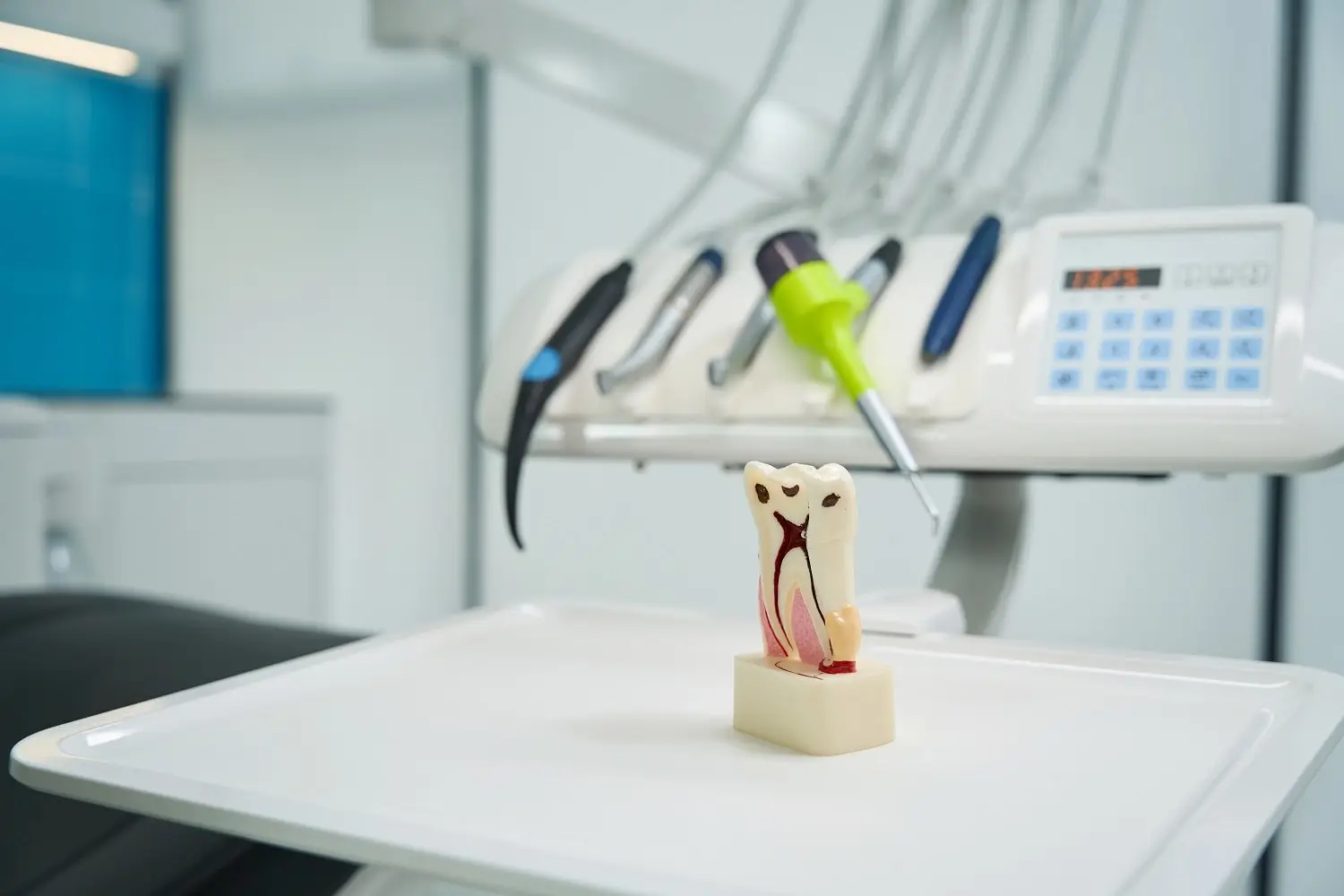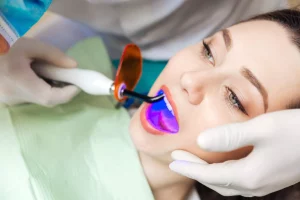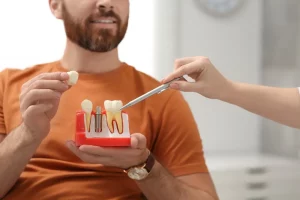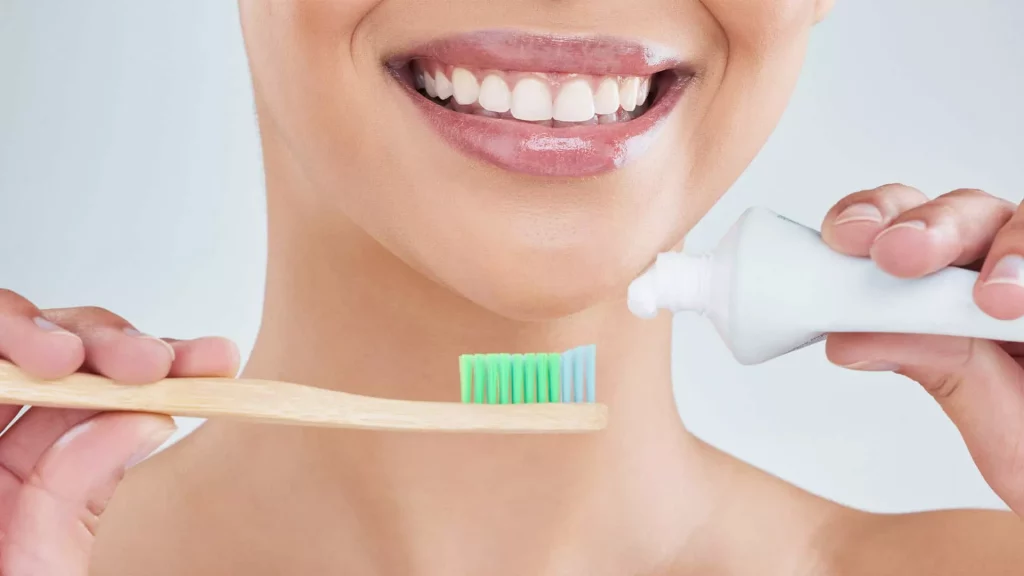Last Updated on: 19th December 2025, 09:25 am
What is the connection between root canal and cancer? Root canal treatments are the commonly advised dental treatment in clinical practice. When it comes to root canals, many myths are circulating about procedural pain, post-procedure difficulties, and supposed systemic health conditions that can develop. Before you believe any of such information, it’s time to pay a visit to our nearest dental office and clear all your doubts about dental health and root canal procedure. Our dentist at Channel Island Family Dental Office will make sure this false information is nothing more than a scare tactic you should disregard, and root canal treatment is a common procedure that is completely safe and effective.
What is a root canal?

The root canal is a procedure used to treat infection in the tooth to the end of its length. Three main layers, the outermost enamel, then dentin, and the innermost known as the pulp of the tooth, form the tooth. The part of the tooth known as the root canal contains the pulp of the tooth. The pulp is the part of the tooth that contains nerves, blood vessels, and connective tissue cells. When bacteria get into this area, an infection can develop, which may eventually lead to cell death in the pulp.
Symptoms
The infection in the root canal of the tooth can cause several symptoms, including pain when chewing, sensitivity while having hot or cold food or drink, and loose teeth. The initial symptoms can get worsen involving the connected tissues leading to additional symptoms, such as:
- Return of pain when biting or chewing
- Swollen gums near the affected tooth
- Pus oozing from the area
- Visible swelling on the face
Root canal treatment is a highly effective procedure designed to thoroughly remove the dead or dying pulp from an infected tooth. The dentist will not only eliminate the bacteria but also seal the tooth to prevent further complications. To ensure long-term stability, a crown is placed on the tooth. It’s important to be aware of the most common root canal symptoms, such as persistent toothache, sensitivity to hot or cold, swelling, and gum tenderness. Root canal treatments are the preferred option for saving an infected tooth, as extraction is the only alternative for addressing such dental issues.
Removal of the tooth is not only traumatic to oral health but also to the patient. Most dental specialists around the globe agree that it is always best to keep as many natural teeth in the mouth as possible to maintain the integrity of the jaw and facial structure.
Do root canals cause cancer?
If you are wondering how this myth was started, it states back to the early 20th century, when Weston Price ran a series of poorly designed tests that led to his false belief that individuals who received root canal treatments contain harmful toxins in their teeth that could be the prime target for cancer.
A recent documentary on Netflix called “Root Cause” is causing quite a stir. Many questions are arising regarding the safety and effectiveness of root canal treatments and their possible connection to cancer. In the documentary, the connection of root canal treatment with cancer and other systemic problem is explained by the focal infection theory that states that chronic diseases are caused by localized infections.

It was stated that because it is not possible to remove all the bacteria in a root canal-treated tooth, a chronic inflammatory response is induced that could lead to systemic diseases such as cancer, arthritis, heart disease, chronic fatigue, and male impotence.
In this documentary, the case is made by one osteopathic physician that 97% of terminal cancer patients (breast cancer) previously had root canal procedures suggesting a connection between root canal treatment and the development of cancer.
The truth of root canal and cancer
The American Association of Endodontists (AAE) states that over 25 million root canal treatments are carried out every year in the US. If it were true that root canals caused diseases like cancer, there would be much more information about it available in peer-reviewed scientific publications, and root canals would not be the preferred treatment option to save teeth.
To conclude, Some people who have cancer may have had a root canal treatment at some point in their life. This does not mean that the root canal procedures had anything to do with the development of cancer.
Advancements in medicine, techniques, and technologies have made endodontic treatment a more predictable, successful treatment than ever before. Today, digital imaging, rubber dams, rotary instruments, powerful disinfectants, and medicated filling materials help ensure successful root canal treatment.

When faced with a severe infection in a tooth, endodontic treatment becomes necessary to eradicate the bacteria from the infected root canal, prevent reinfection, and preserve the natural tooth. If the dentist determines that a root canal procedure can save the tooth instead of resorting to extraction, it is typically the recommended course of action. It is important to note that while root canal treatment is often the best alternative to address the issue, there may be situations where extraction becomes the most suitable option.
The myth about root canal procedures may be prevalent on the internet, but there is no scientific evidence to back up these claims.
It is not advisable to overlook the signs and symptoms of any persistent pain and infection. We, at Channel Island family Dental Office, dentists in Ventura, Oxnard, and Port Hueneme, thoroughly examine the patient, take required X-rays to determine the cause of infection, and plan the course of treatment.
Contact Us
If you have any questions about root canal and cancer or other topics, you can contact us at Channel Islands Family Dental as well as our page on Facebook. We look forward to your visit and we will make a timely diagnosis. Our dentists in Oxnard, Santa Paula, Ventura, Newbury Park, and Port Hueneme will be able to guide you toward the best treatment to take care of your health and give you back your best smile.














